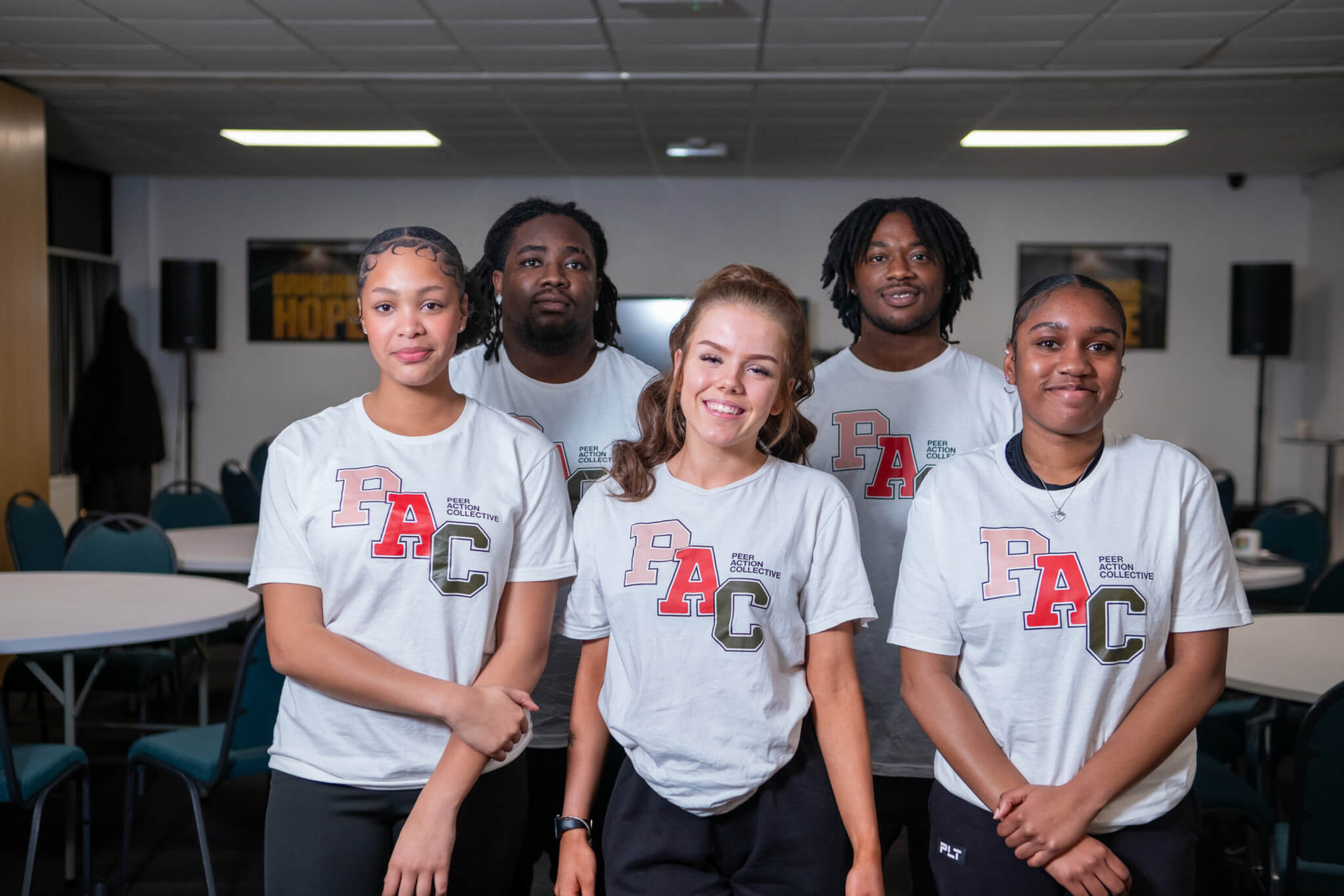
ABOUT PAC
All too often, young people who experience violence aren’t heard. But change won’t happen if they’re not at the heart of it. That’s why the Peer Action Collective (PAC) exists.
What is the Peer Action Collective?
Through the Peer Action Collective (PAC) young people are working to lead research on issues of violence and using what they learn to drive change.
PAC is a ground-breaking network of peer researchers and changemakers. Young people with lived experience of violence find out what needs to happen to make their area a better place to live and turn these insights into action. From coproducing violence reduction strategies, influencing school practises, improving local mental health services, and supporting more young people into employment – together, they are ensuring that young voices respond to issues that directly affect them.
PAC was founded and funded by the Youth Endowment Fund, the #iwill Fund (a joint investment between The National Lottery Community Fund and the Department for Culture, Media and Sport) and the Co-op to support young people to take the lead on issues related to violence that affect them.
Since the launch in 2021, PAC has seen over 12000 young people taking on the issues affecting their local communities and creating solutions. They are taking on the biggest challenges, while also influencing hundreds of senior decision-makers across the country.
From 2025 to 2027 a final PAC programme, funded by the Youth Endowment Fund and the #iwill Fund (a joint investment between The National Lottery Community Fund and the Department for Culture, Media and Sport), will see a further 2600 young people work together in creating research-based, long term and sustainable social action to help young people access opportunities and live a life free from violence.
What is peer research?
Peer research is when people with lived experience of the issues being studied are involved in designing and conducting the research. In PAC’s case, our peer researchers are young people who have been affected by violence. They’ll use that experience to connect with other young people in their community, and learn more about what needs to change to help them access the best possible services and support.
This kind of research is based on the idea that people who understand their local area and communities are ideally placed to generate new knowledge and insight about the issues affecting them.
In practice, peer researchers might be involved in identifying research topics, designing questionnaires and surveys, collecting data, running focus groups or interpreting and sharing their findings.
Why is peer research important?
Peer research has many benefits:
- Open and honest opinions
Research participants may talk more openly with a peer researcher – particularly on sensitive topics like youth violence – than they would with someone ‘external’, who they don’t know or trust. For example, when answering questions, young people might say what they think the researcher wants to hear, rather than voice their honest opinions. - Inclusive
Living in a community and having strong local connections means peer researchers are often able to reach those who wouldn’t normally take part in research and whose voices would typically never be heard. - Knowledge of the issue and the local area
Peer researchers bring their own knowledge and lived experience of an issue, which helps to build empathy with the participant and leads to insightful questioning and rich discussions. - Development and training opportunities
Being trained as a peer researcher and having the opportunity to put it into practice means young people can develop a range of transferable skills and gain great experience for future employment or education.

